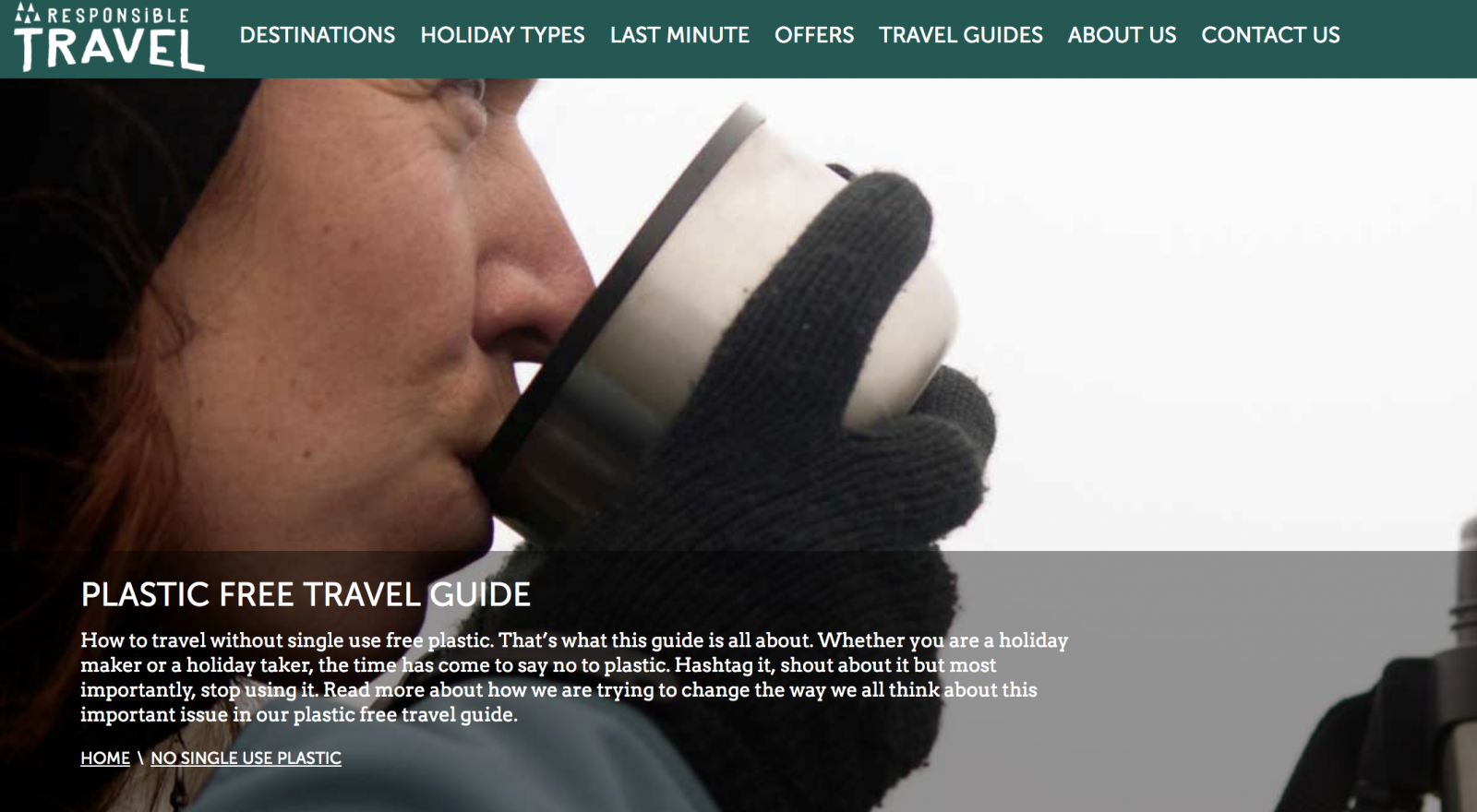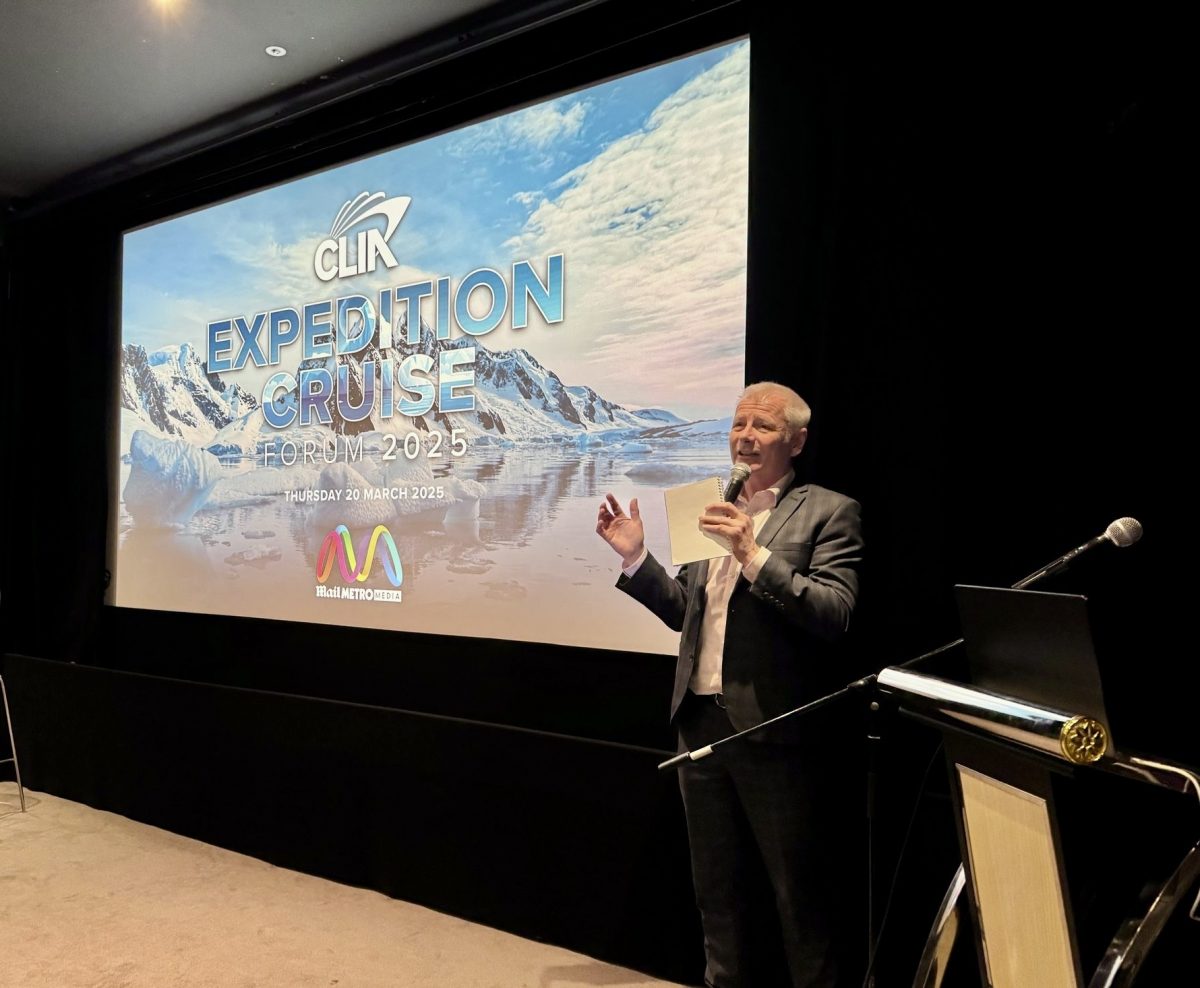Plastic promises

When it comes to reducing plastic waste, travel companies are heading in the right direction, but engagement with customers is key, says Rob Perkins, responsible tourism specialist at Responsible Travel.
"Travellers are increasingly aware of the need to reduce plastic waste on holiday. Companies that are not able to demonstrate their own contributions are likely to face searching questions. No-one expects 100% perfection, but what they do expect is genuine commitment, not ‘greenwashing’, and at the heart of that is communication.
It’s been estimated that around eight million tons of plastic reaches the oceans every year. The Ellen MacArthur Foundation has announced that if things don’t change, by 2050 our oceans will contain more plastic waste than fish by tonnage. And that’s just what’s in the water. More still ends up in landfill, or burned. The convenience and low cost of plastics has led to an addiction that is wreaking havoc on the environment.
But there are encouraging signs throughout the travel industry that the problem is being taken seriously. InterContinental Hotels Group (IHG) announced in July that it will begin removing all miniature toiletries from guest rooms for environmental reasons, the first global hotel brand to do so. IHG swells the ranks of major hotels operators taking steps to slash their use of single-use plastics.
Airlines face challenges with plastic reduction that accommodations and tour operators do not. They are hindered not only by time constraints between landings and take-offs, but onboard space and weight limits. Yet Portuguese airline Hi-Fly has pledged to eliminate single-use plastics on its flights by the end of 2019, while Iberia claims its initiatives have led to a reduction of over 68 tonnes of plastic waste every year. Simply wrapping duvets and blankets in paper rather than plastic has apparently saved an astonishing 34 tonnes annually.
And our own list of plastic-free holidays is growing constantly, a testament to the efforts of tour operators who recognise the scale of the problem and the urgency of finding innovative solutions. Several provide their travellers with reusable bottles for drinking water, and tote bags for shopping trips, while others organise beach cleans, or support projects in-resort to reduce single-use plastics in communities.
Plastic-free holidays
The tourism industry creates massive amounts of plastic waste through its day-to-day operations, from the obvious: straws and stirrers, cutlery, toiletries, wrapping headphones and blankets on flights, the ubiquitous plastic bottle, to the less-obvious including the packaging that ingredients arrive in for hotel kitchens, to guest laundry returned in plastic bags.
Removing or replacing all this plastic is likely to prove costly and time-consuming. For instance, if hotel cleaners need to polish glassware instead of replacing a few plastic bottles, or sort recycling in every bin, then guests may need to wait longer for their rooms to be ready. Airline passengers may need to accept reusing one plastic cup for the duration of their flight. A degree of compromise will be necessary.
Another clear sign of progress is companies such as Travel Without Plastic, which is working with the hotel industry to help change mindsets, and offer top-to-tail audits to identify plastics throughout an organisation’s supply chain and operations. Their aim is to provide tailormade, cost effective solutions to radically scale down the use of single use plastics in hospitality, without compromising on the guest experience.
Engagement is key
This approach, a step-by-step audit, is a great way for any business to start out on its own plastic-free journey. And what’s important is for businesses to honestly and openly convey to guests what stage they have reached, and where they intend to go next. Engagement is at the centre of any responsible tourism initiative. It’s all about talking to your customers, your suppliers, your stakeholders and asking them what they want to see, where they might be prepared to compromise, and crucially how they can help.
Tokenism, greenwashing, a ‘will this do’ approach – these are not going to be acceptable anymore to a switched-on, politically engaged and vocal public that is growing more concerned about environmental issues and specifically the problem of plastic waste. And from beaches choked with plastic to bottles floating in the sea and heartbreaking images of turtles trapped in fishing tackle, the damage we’re causing to the environment seems to come into even starker perspective when we’re on holiday.
Plastic waste legislation may not be too far away. The travel industry has an opportunity now to get ahead of it."
Bev
Editor in chief Bev Fearis has been a travel journalist for 25 years. She started her career at Travel Weekly, where she became deputy news editor, before joining Business Traveller as deputy editor and launching the magazine’s website. She has also written travel features, news and expert comment for the Guardian, Observer, Times, Telegraph, Boundless and other consumer titles and was named one of the top 50 UK travel journalists by the Press Gazette.
 United Kingdom
United Kingdom United States
United States Asia Pacific
Asia Pacific












































Qatar Airways adding Manchester flights
EU entry-exit system delayed again
Jet2 unveils Samos as new Greek destination for summer 2026
ATC strike in Greece could disrupt flights this week
Carnival Cruise Line hosts Prague getaway for Fun Ambassadors